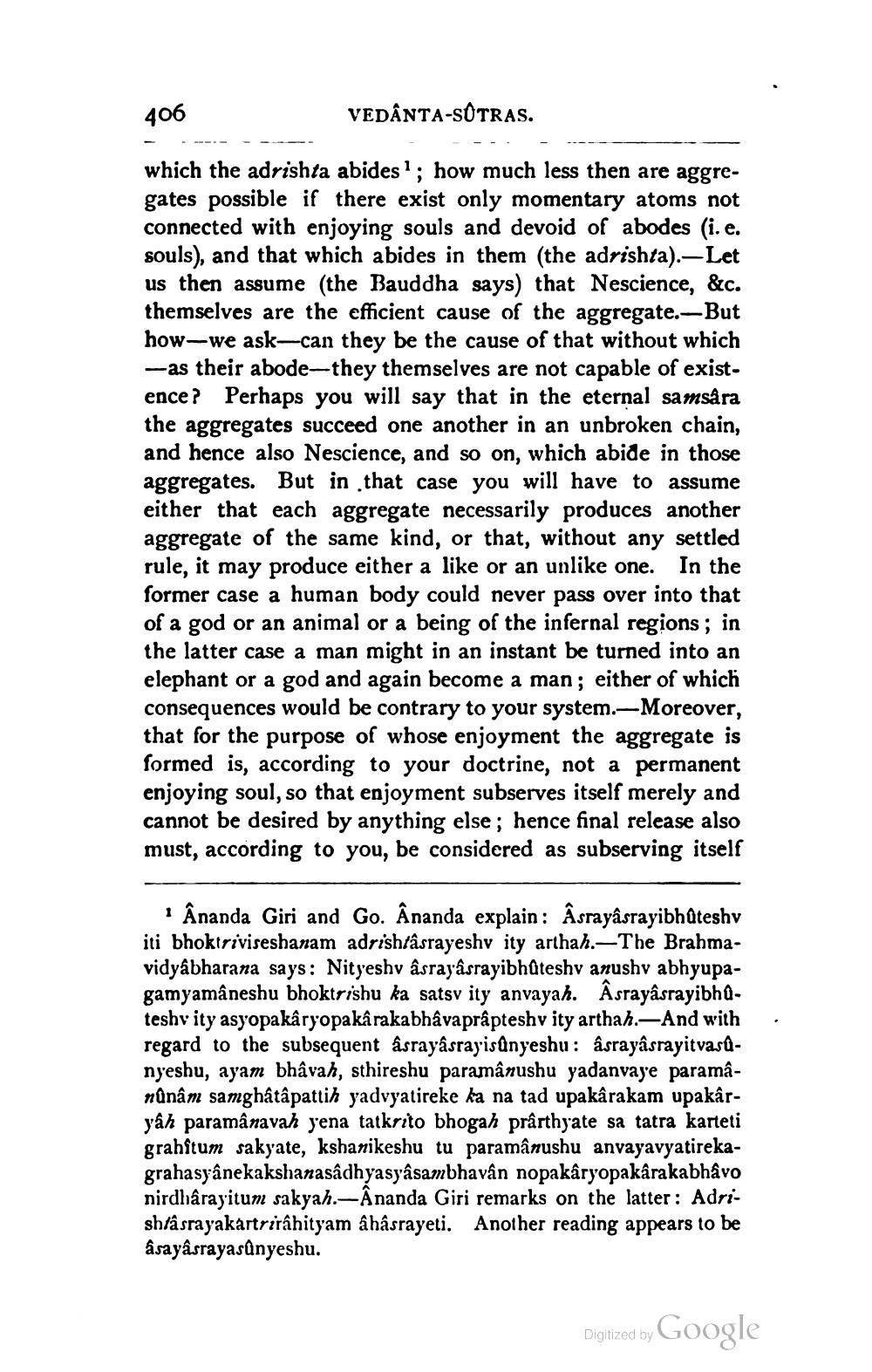________________
406
VEDÂNTA-SOTRAS.
which the adrishta abides"; how much less then are aggregates possible if there exist only momentary atoms not connected with enjoying souls and devoid of abodes (i.e. souls), and that which abides in them (the adrishta).- Let us then assume (the Bauddha says) that Nescience, &c. themselves are the efficient cause of the aggregate. But how-we ask-can they be the cause of that without which
-as their abode-they themselves are not capable of existence? Perhaps you will say that in the eternal samsara the aggregates succeed one another in an unbroken chain, and hence also Nescience, and so on, which abide in those aggregates. But in that case you will have to assume either that each aggregate necessarily produces another aggregate of the same kind, or that, without any settled rule, it may produce either a like or an unlike one. In the former case a human body could never pass over into that of a god or an animal or a being of the infernal regions; in the latter case a man might in an instant be turned into an elephant or a god and again become a man; either of which consequences would be contrary to your system.-Moreover, that for the purpose of whose enjoyment the aggregate is formed is, according to your doctrine, not a permanent enjoying soul, so that enjoyment subserves itself merely and cannot be desired by anything else; hence final release also must, according to you, be considered as subserving itself
.
· Ânanda Giri and Go. Ânanda explain : Âsrayâsrayibhūteshv iti bhoktriviseshanam adrishtâsrayeshv ity arthah.—The Brahmavidyabharana says: Nityeshv asrayâsrayibhûteshv anushv abhyupagamyamâneshu bhoktrishu ka satsvity anvayah. Asrayâsrayibhûteshvity asyopakâryopakârakabhâvaprâpteshvity arthah.—And with regard to the subsequent asrayâsrayisůnyeshu: âsrayâsrayitvasů. nyeshu, ayam bhâvah, sthireshu paramânushu yadanvaye paramanûnâm samghatâpattih yadvyatireke ka na tad upakârakam upakâryah paramânavah yena tatkrito bhogah prârthyate sa tatra karteti grahitum sakyate, kshanikeshu tu paramânushu anvayavyatirekagrahasyanekakshanasâdhyasyâsambhavân nopakâryopakârakabhavo nirdhârayitum sakyah.-Ânanda Giri remarks on the latter : Adrishtásrayakartrirâhityam âhâsrayeti. Another reading appears to be âsayâ srayasünyeshu.
Digitized by Google




